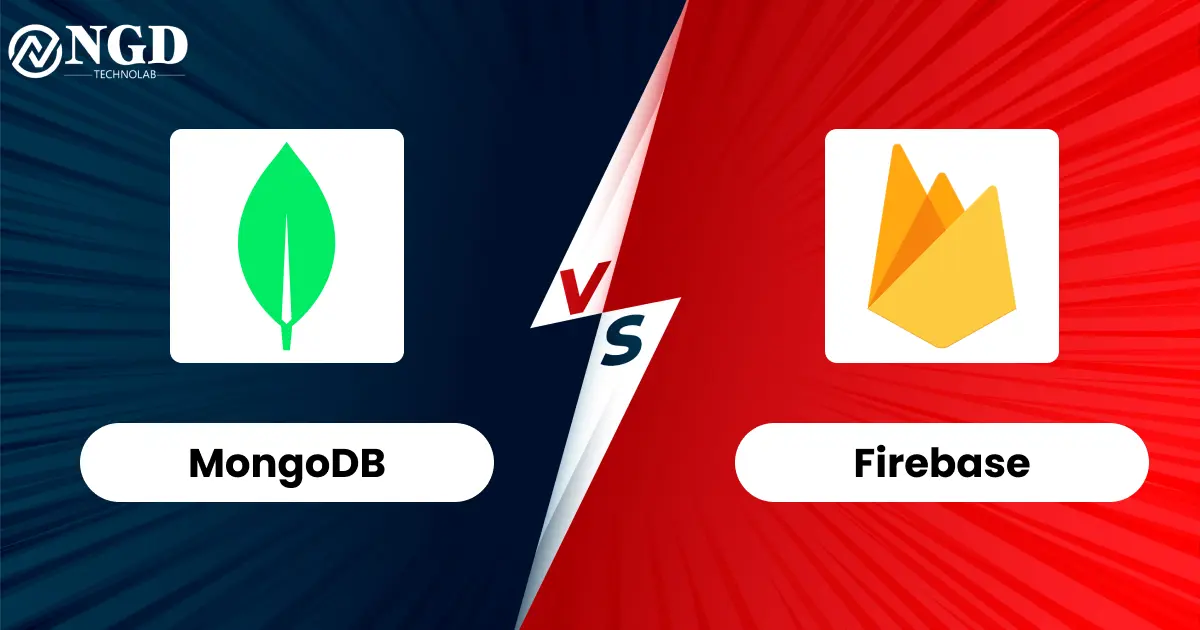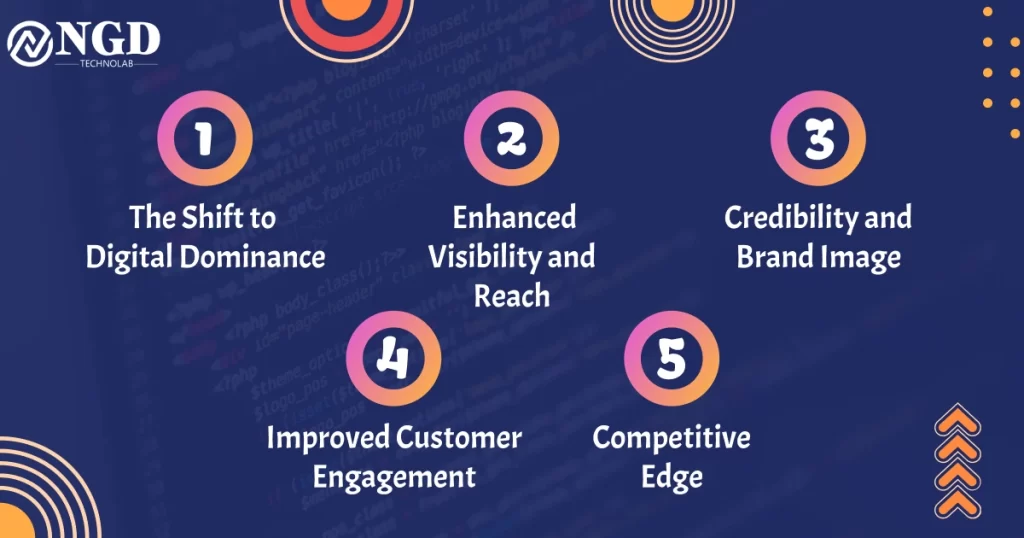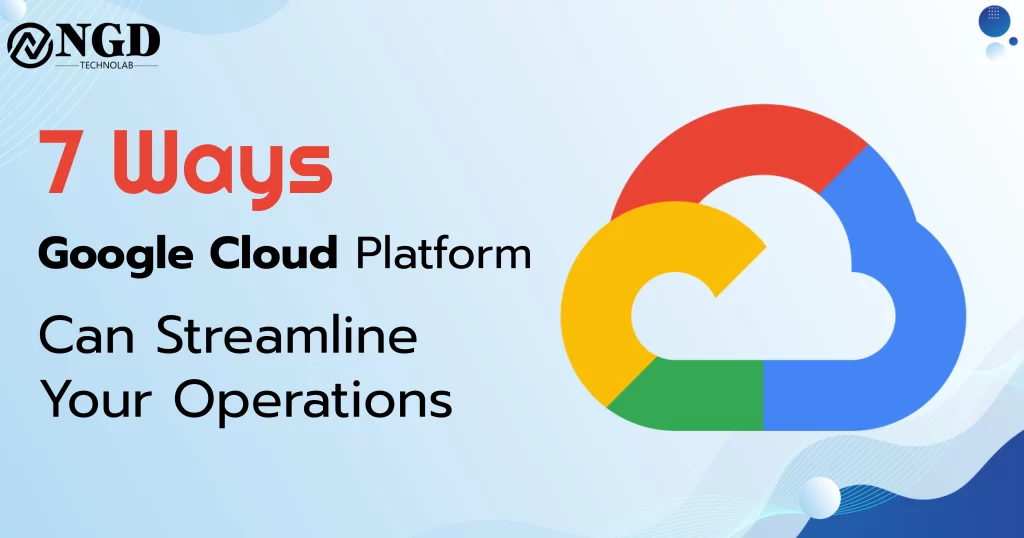MongoDB vs Firebase: Which Is The Best Database
- Published On - February 19, 2024
-
Harshid Patel

Choosing the right database is a critical decision for app and web development. MongoDB and Firebase stand out as two juggernauts in the field, each with its unique strengths. This comprehensive guide will delve into the depths of MongoDB vs Firebase, exploring their features, performance, and suitability for various projects.
Choosing between MongoDB and Firebase is like deciding the fate of your project. Let’s dive into the details of each to make it simpler to pick the right one.
MongoDB: Unraveling the Powerhouse
MongoDB, a NoSQL database, has gained immense popularity for its flexibility in handling unstructured data. Unlike traditional relational databases, MongoDB embraces a document-oriented model, making it an ideal choice for dynamic and evolving projects.
MongoDB boasts features like horizontal scalability, JSON-like documents, and powerful querying capabilities. Its sharding functionality allows seamless distribution of data, ensuring optimal performance even as your data grows.
From content management systems to e-commerce platforms, MongoDB shines in scenarios where flexibility and scalability are paramount. Case studies illustrate its effectiveness in handling large volumes of data with ease.
Firebase: Decoding the Google Magic
Firebase, backed by Google, is a comprehensive mobile and web application development platform. Its real-time database, authentication services, and cloud functions make it a compelling choice for startups and enterprises alike.
Firebase makes building apps super easy! It keeps everything in sync in real-time and doesn’t need a server, making development a breeze. Plus, it has cool features like keeping your app secure and helping you launch it smoothly. It’s like your app’s best friend, working seamlessly with other Google Cloud services for added convenience!
Firebase excels in projects where rapid development and real-time updates are crucial. Examining real-world applications showcases its success in powering dynamic apps with high user engagement.
Head-to-Head: MongoDB vs Firebase
MongoDB’s document-oriented structure provides unmatched flexibility, allowing developers to work with evolving data structures. Firebase, while versatile, adheres to a more structured format.
MongoDB’s rich query language enables complex data retrieval, while Firebase’s real-time queries deliver instant updates but with some limitations. Understanding the nuances is vital for choosing the right fit.
MongoDB’s horizontal scaling accommodates growth seamlessly, while Firebase’s scalability is tied to Google’s cloud infrastructure. The scalability factor can significantly impact project decisions.
Firebase’s real-time database excels in delivering instant updates, but MongoDB, with proper configurations, can also achieve real-time functionality. Choosing the better fit depends on the project’s specific requirements.
MongoDB’s ecosystem is robust, with extensive community support and third-party integrations. Firebase, being a Google product, integrates seamlessly with other Google Cloud services, offering a cohesive ecosystem.
Performance Showdown
MongoDB’s performance shines in read-heavy operations, while Firebase’s real-time updates provide a swift experience. Analyzing performance benchmarks aids in understanding which database aligns with your project’s performance needs.
Both databases prioritize security, but MongoDB’s fine-grained access controls and encryption features provide granular control. Firebase’s security features, while robust, may require additional configurations for specific use cases.
MongoDB’s flexible schema and powerful query language cater to developers accustomed to working with diverse data structures. Firebase’s simplicity and real-time updates appeal to those seeking a rapid development cycle.
Choosing the Right Fit: Decision-Making Criteria
Assessing your project’s specific needs is crucial. If flexibility and scalability are paramount, MongoDB might be the better fit. Firebase excels in projects requiring real-time updates and rapid development.
Consider the expertise of your development team. MongoDB might be preferable for teams familiar with NoSQL databases, while Firebase’s simplicity may benefit those focused on rapid prototyping.
Evaluate the financial aspects, considering factors like hosting costs, scalability requirements, and any additional services. MongoDB’s open-source nature may appeal to budget-conscious projects, while Firebase’s pricing model aligns with specific usage patterns.
Conclusion:
As we conclude our exploration of MongoDB vs Firebase, it’s evident that each database has its strengths. The choice ultimately hinges on your project’s unique requirements, development team expertise, and budget considerations. Whether you opt for the flexibility of MongoDB or the real-time capabilities of Firebase, ensuring alignment with your project goals is paramount.
Frequently Asked Questions:
MongoDB’s horizontal scaling makes it well-suited for large-scale applications with evolving data structures.
While Firebase has a strong focus on mobile app development, its services are versatile and applicable to web development as well.
Yes, MongoDB can achieve real-time functionality with proper configurations and the use of features like Change Streams.
Cost-effectiveness depends on specific project requirements. Evaluate hosting costs, scalability needs, and additional services to determine the most economical choice.
Firebase’s simplicity and integration with other Google services make it relatively easier for beginners. However, MongoDB’s learning curve is also manageable with its intuitive query language.
Get Free consultation and let us know about your custom web and Mobile App project idea

Over 14+ years of work experience, we have built 210+ web and mobile apps
We can help you with
- Dedicated Developer
- delivering high-quality development
- Custom Mobile App Development
- Innovative Solution For Startups and Enterprise


